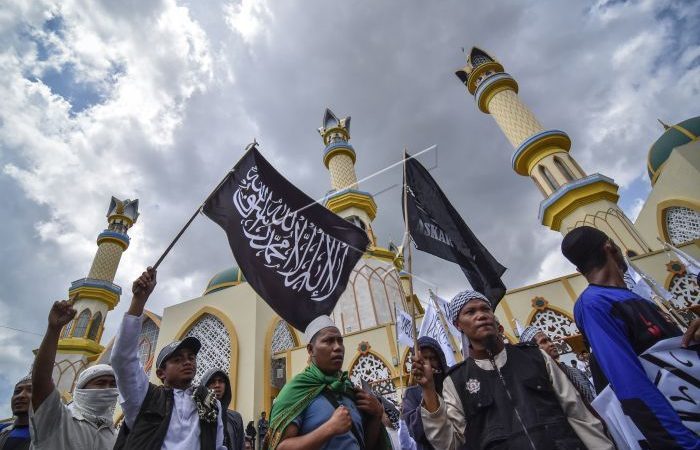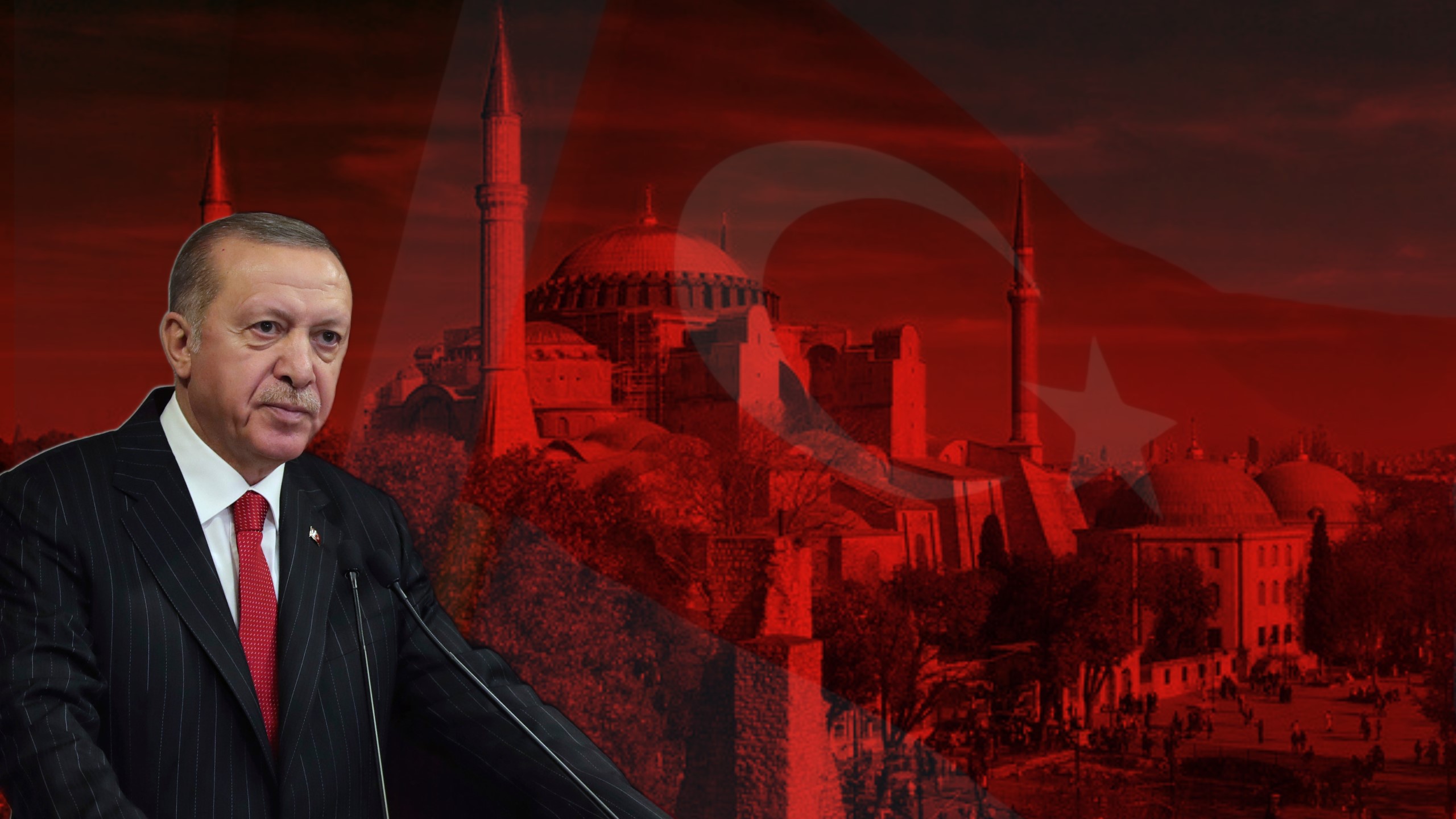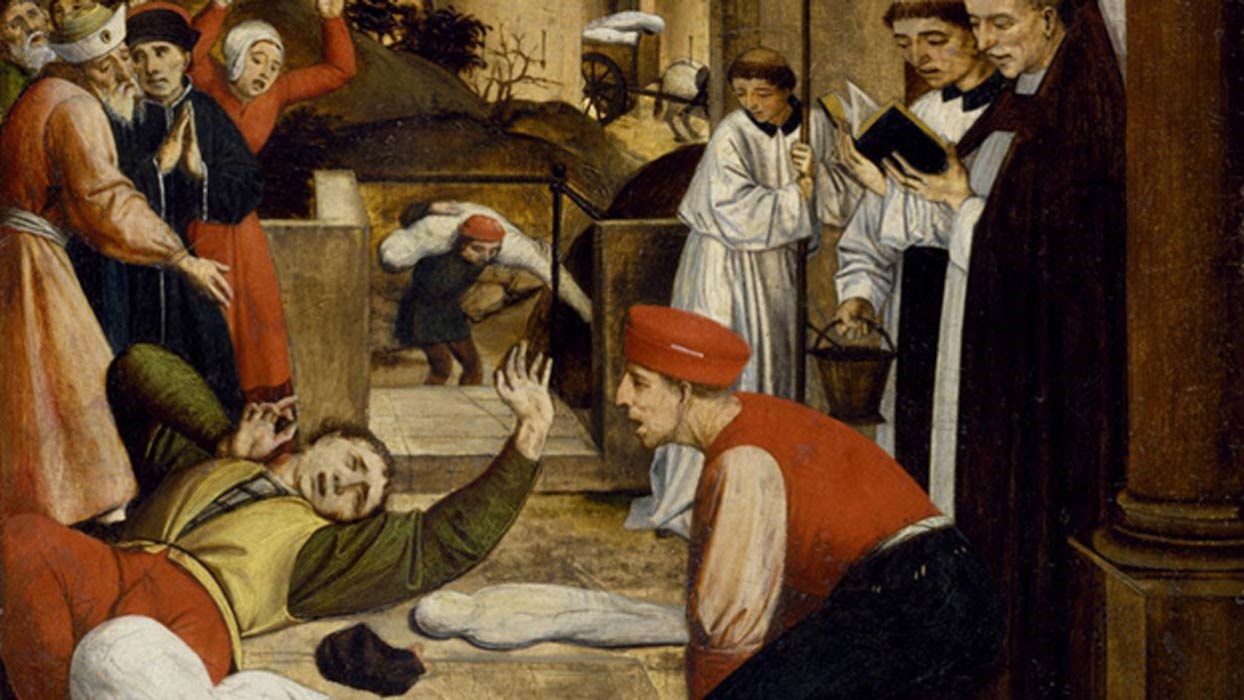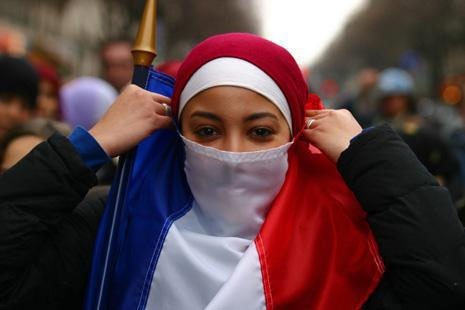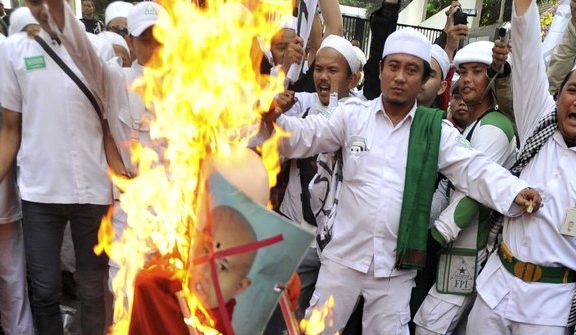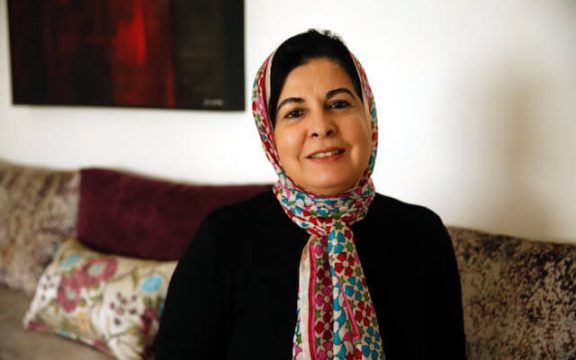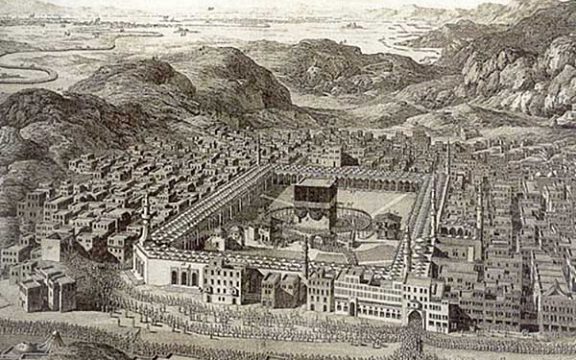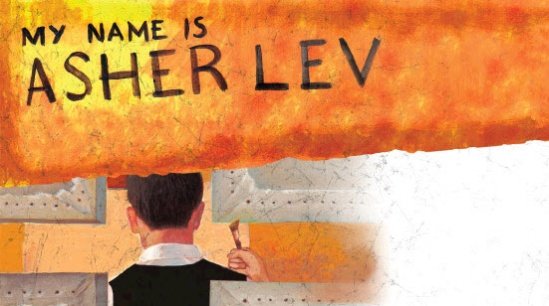Current trends reveal that Islamist groups within their insular view often proclaim that they are the rightful one to represent Islam in general. Excessive usage of symbolism of Islam and Quranic verses strengthens and legitimates the claim among their supporters. The main goal, indeed, is to exclude the other groups who are differing views. For some reason, the different others could easily be accused as hostile to Islam.
One example is the usage of “Islamic flag” to legitimate ISIS or Hizb Tahrir movements. Given this phenomenon, I assume their claim is clearly naïve. Considering that, for example, the banner used in the Prophet’s time certainly did not consist of “punctuations” and vowel marks – harakah – and using thuluth caligraphy style. Both punctuations and vowel marks in fact invented a long period after the death of the Prophet by Abu al-Aswad ad Du’aliy. Meaning the Islamic flags they use now is a newly invention.
The usage of the flags as groups’ identity has a similar purpose likewise, to claim that they are the rightful group to represent Islam. Such Islamist groups tend to easily attack the different others due to critics towards the use of flags. Lot of Muslims worrying if the sacred creed sentences –the Tawheed written in the flag– were scattered an treated improperly. The Islamist groups will immediately accuse such critics as anti-Islam or blaspheming Tawheed.
Just look at when they distributing leaflets and brochures haphazardly containing Tawheed sentences. Shouldn’t they also be obliged to maintain those sacred sentences by not treating and spreading it recklessly? Isn’t it a very paradoxical attitude?
In Islam, legitimating a view through using religious symbols is not a new phenomenon. For example, when Muawiyah’s troops were urged in the Shiffin war they tied the Mushafs of Quran as strategies to force Ali’s troops to decrease their attack. Some Ali’s troop urged him to receive arbitrage (tahkim) invitation even though Ali actually remained to reject.
Finally, Ali agreed to arbitrage but those people who first urged him to receive the arbitrage conversely turned to totally reject the agreement of arbitrage. They argued that Ali was subjected under human law, instead of God’s law. Those people further Khawarij, the deserter people. Most of them are pious, obedient worshipper but their arogance claim that their understanding on Islam exceeded Ali.
So does in the current Indonesian context, there are deserters who are unaware of the menaces which may endanger the nation-state living. Otherwise, they even seem to protect the defying group against state ideology. These people do not understand the risk like protecting a wild animal which is ready to kill them anytime.
After the death of Ali and both of his son, Hasan and Husein, Muawiyah also claimed to strengthen his authority through a sermon for the Muslim mass. He emphasized that his victory for the throne and Ali’s death was purely destined by God’s will.
Once upon a time, when Muawiyah propagated his claim within the sermon, Muhammad al Hanafiyah, a pious Muslim and the son of Ali from his wife named Khaulah, daughter of Ja’far from Bani Hanifah, who attended in this sermon protested. He said “O, Muawiyah! It is never been a God’s will (qadha and qadar) but the human deed is a consequence of their will.”
This words later triggered the emergence of an ideology named Qadariyyah. This Islamic ideology tends to emphasize the independence of human action in absolute terms.
In terms of claiming a symbol as Islamic representation, indeed, it is problematic. For example, to say that Yemen bombed Saudi Arabia as a blasphemy against Islam merely because of the Saudi Arabia national flag consistsing of Tawheed words. In contrary, I argue that destroying any symbol involved in a provocation may be justified. Looking at the prophet’s decision to destroy Dhihar mosque after it was used as the source of spreading slander and provocation among Muslims.
![Islami[dot]co](https://en.islami.co/wp-content/themes/jambualas/images/logo.png)
